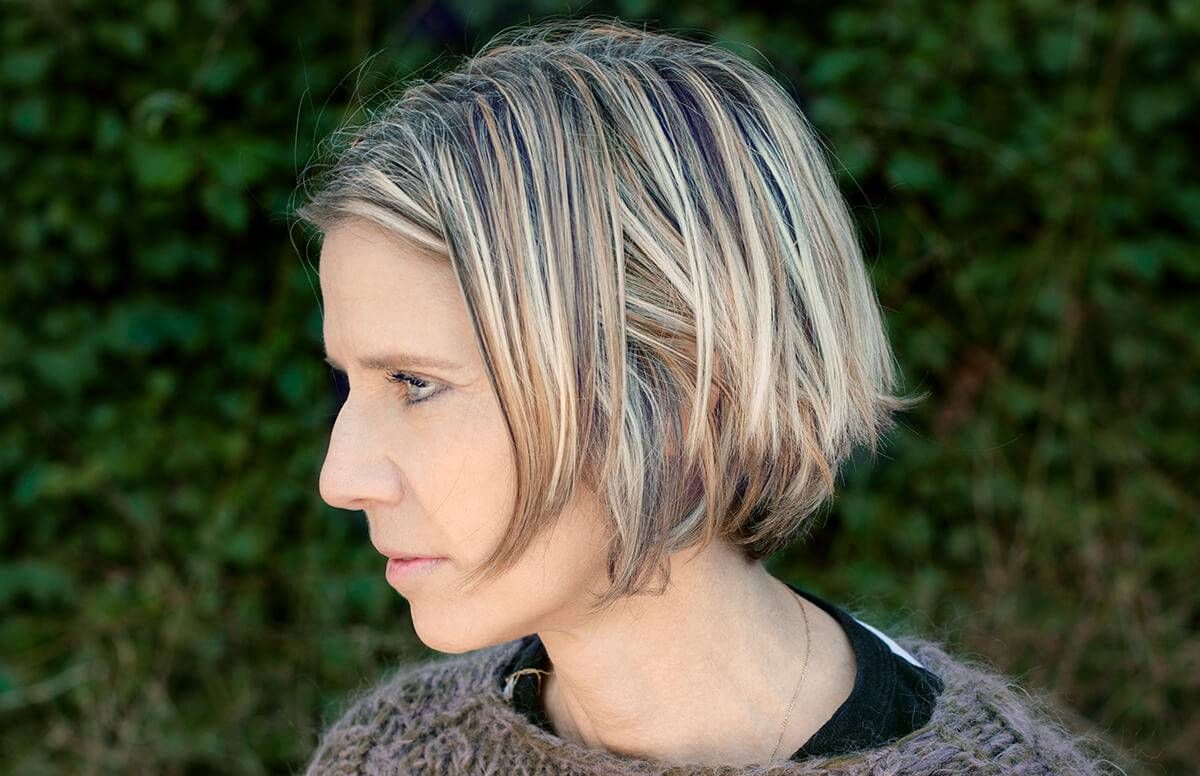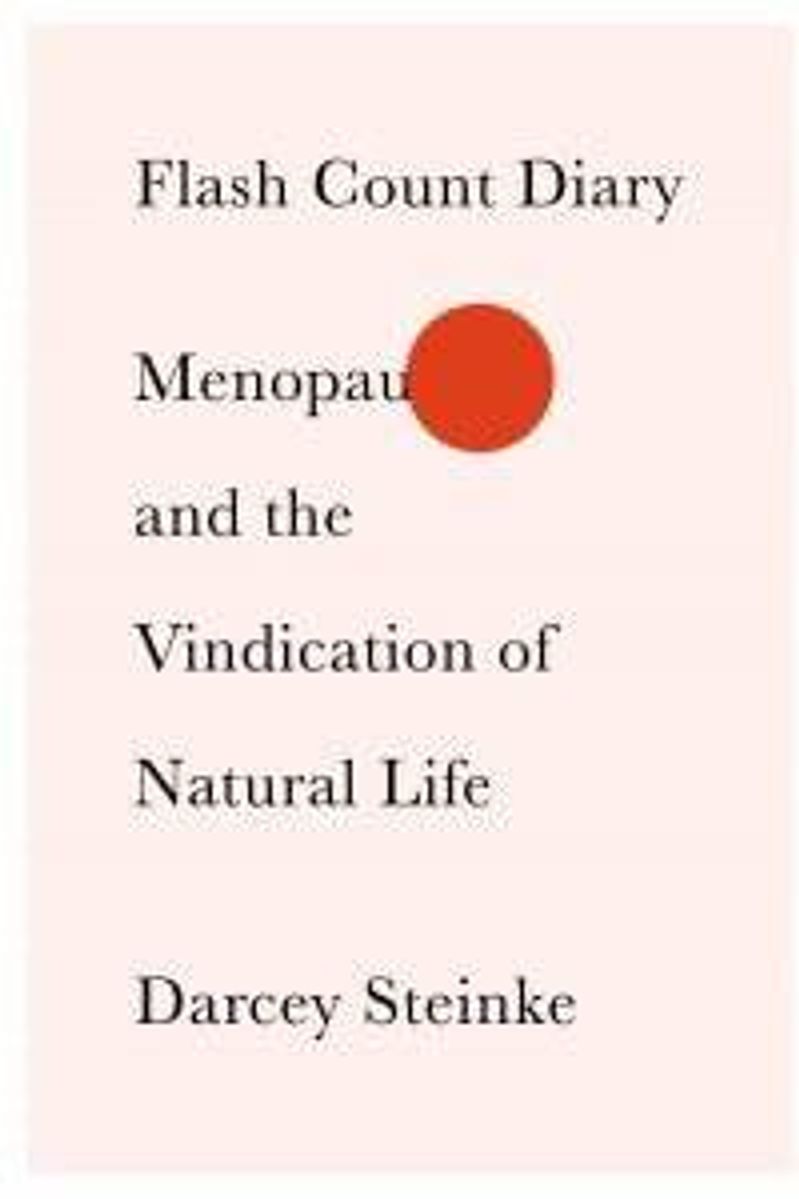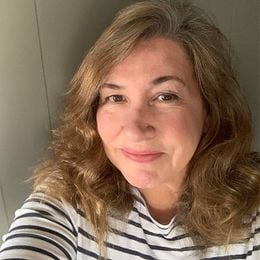Author Darcey Steinke on the Intrinsic Power of Menopause
Her new book 'Flash Count Diary' addresses much more than hot flashes
Darcey Steinke’s personal flash count diary filled three black and white composition-style notebooks. In them were recorded the extreme hot flashes she experienced over a two-year period when menopause hit her hard five years ago, at age 52.

There could be as many as 20 per day, some more severe than others, but a typical day saw eight to 10. Sitting in a restaurant, riding on the New York City subway, standing in line at the bank … all everyday occurrences overthrown by random moments when she felt unstoppable heat rising through her body. That doesn't include the agony of sleepless nights, where she'd run to the freezer for bags of frozen vegetables to calm her skin.
As difficult as the hot flashes were, Steinke admits she found them to be “really fascinating” and was keen to record the nuances of the episodes. She also wanted to learn more about the full experience of menopause, not just the physical aspects. But, she says, “I wasn’t able to find any books I liked.”
"There is negativity in our culture that says we are no longer desirable. We have to define ourselves. You have to decide that you are vital."
So Steinke, the author of five novels including Sister Golden Hair and Milk, wrote Flash Count Diary: Menopause and the Vindication of Natural Life (Sarah Crichton Books). It's about much more than hot flashes, and broadens the discussion of the social, spiritual, sexual and emotional nature of menopause.
Steinke's Advice: Stop Caring What the World Thinks
Flash Count Diary is extensively researched, featuring quotes by everyone from Sigmund Freud, Toni Morrison and Roxane Gay to Germaine Greer, author of The Change (published in 1993) which Steinke says she finds to be “the best feminist text on menopause,” while disagreeing with Greer’s view of trans women. (“Trans women are women. Period.” Steinke writes.)
Steinke also refers to Ann Mankowitz, author of Change of Life: A Psychological Study of Dreams and the Menopause, published in 1984, who claimed that she believed “coming to terms with lost desirability is a woman’s main menopausal challenge.”

However, Steinke says women need to come to terms with not caring what the world thinks.
“We live in a patriarchy that is interested in women as sexual beings,” said Steinke. “There is negativity in our culture that says we are no longer desirable. We have to define ourselves. You have to decide that you are vital. Take your sexuality back into your own hands.”
No Longer Propping Up Female Gender
In the chapter titled ‘Demigirl in Kemmering,’ Steinke addresses the topic of femininity as it relates to menopausal women, and her view on the way her own body is changing.
She writes: “I don’t possess the strong female signifiers I once did. My hair is not long and shiny, my skin is no longer smooth. Plus, I do less to support my gender artificially. I wear more androgynous clothing and rarely put on makeup. I’ve lost interest in doing my female gender, propping it up.”
While Steinke says “there’s no wrong way to go through menopause,” from her perspective, she’s not sure it’s “a successful strategy to prop up our fertile female selves” when our physical reality has changed.
“For me, I feel like this new, creative David Bowie-esque creature. It seems very sexy and cool,” she says. “I find it gives me a certain amount of confidence. There’s game in it.”
'Intrinsic Power in Menopause'
I asked Steinke about women I know, in their 50s, who tend to be eager to chalk up things like forgetfulness and irritability to menopause, exhibiting an ‘Oh well, this is how things are now’ attitude — which I told Steinke I find puzzling. Leaning into that resignation at this stage of life doesn’t seem productive to me.
She agreed. “That jokey, ‘We’re a wreck’ mentality — does that really make us feel inspired as women? I don’t think so,” she said. “We shouldn’t limit ourselves.”
Instead, Steinke believes “there is a lot of intrinsic power in menopause” because for many, this time of life brings opportunity. While many women are still working, family and other responsibilities may have shifted to allow more time for self-development, volunteering or other pursuits.
Much to Learn From Killer Whales
One of most poignant and eye-opening topics addressed in Flash Count Diary is how Steinke learned about that intrinsic power from an unexpected source: killer whales, specifically a killer whale named Granny.
“When I started to go through menopause, I felt so disconnected,” Steinke admits. After yet another sleepless night, she happened upon a story in the science section of The New York Times about female killer whales, and how post-menopause, they can live for as many as 50 more years, eventually becoming the leaders of their pods.
“I became obsessed with killer whales after that. I watched You Tube videos, all kinds of video clips,” she says.
Steinke found herself intrigued, and distressed, by the plight of Lolita, a 50-year old killer whale at the Miami Seaquarium. Captured off Puget Sound in 1970, Lolita has been a performer for more than 40 years, far outliving the five years most whales live once in captivity. Steinke watched countless videos of Lolita swimming back and forth in a too-small tank.
“I identified with her captivity. I felt like a 54-year old captive female,” says Steinke, who has gone on to participate in protests to free Lolita, at Miami Seaquarium. (Despite the fact that, in reponse to years of protests, a plan was developed to return Lolita to Puget Sound and re-acclimate her to life in the wild, in October 2018, the U. S. Court of Appeals in the 11th Circuit determined she would remain at the Seaquarium.)
And then there was Steinke’s trip to Friday Harbor, a town in San Juan Island, Wash. She went whale-watching there with a group, hoping to have the good fortune to see Granny for herself. Granny, born in 1911, was frequently spotted caring for younger members of her pod as they swam in nearby Haro Strait.
Steinke, who said she “had built up so much admiration” for Granny, did, in fact, see her as the kayaking group headed toward the Salish Sea, thrillingly buoyed by the arrival of a whale pod.
She writes: “Our kayak rises up and in front of me, only a few feet away, is a massive killer whale. Kawouf! I see a brown eye looking directly at me, the shining, numinous expanse of body. ‘It’s Granny,’ Matt (the guide) says. “I see the notch.”
Today, thinking about what she learned about the strength, power and leadership of menopausal whales such as Granny (who has since died) and their matriarchy, Steinke says, “Granny pulled me through my menopause. I kind of wonder what would have happened to me without her.”
Starting a Dialogue About Menopause
Steinke has been gratified by the response to Flash Count Diary. “I had a woman write to me and tell me that she cried at the end of the book because she really felt heard and seen,” says Steinke. “At book signings, women have been very open about intimate aspects of menopause. One woman told me how her interest in sex had changed.”
The positive responses are all meaningful to Steinke, who says her goal in writing the book was simply to open an avenue for further exploration of the topic of menopause (which, she says, “is not a disease to be cured”) and to start a dialogue about something that women are frequently hesitant to discuss — but shouldn’t be.
“Menopause is a natural reality,” she says. “Let’s talk about it.”


